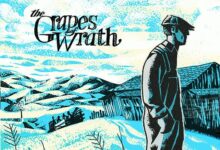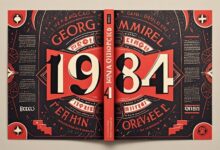“Fate is always more marvelous than any man-made design; we never know what it will tell us and great secrets are hidden in the well-being of God.” –Westward by Elrond
There are many things that we wait until many years after they happen before we can wait for their endgame. Bilbo picked up a ring when he was 51 years old, and I was blown away by Middle-earth on the screen when I was 14.
Fourteen was a providential age. At that age, Tolkien hadn’t yet turned into an old man who loved to sit in his study with a pipe in his mouth and a kindly look on his face. Still, three years earlier, he had begun to pay attention to the phenomenon of sound transformation in linguistics. He would soon start working on his language, called Naffarin, and use the theory of sound transformation to construct an ancient Germanic language lost to history. His friends from the legendary TCBS society had already appeared in twos and threes, and he had no shortage of like-minded friends immersed in his world of language and myth.
At fourteen, I had already made friends who were still in the same boat. The vast world of words had just opened up to me, with the idealism and heroism of a teenager flourishing in my heart, and the mysterious awe and boundless imagination of the world I had experienced in my childhood still intact. Galadriel’s voice pronouncing “One for the Dark Lord on his dark throne, In the Land of Mordor where the Shadows lie” was enough to send a shiver down my spine, and the mournful elf, the brave princess, and the heavy-laden king of men were enough to make me sigh. I sat under the yellowing grape arbor in early fall, gushing to my hairy friend about the wonders of Middle-earth, exclaiming, “If I could build a world like that in my heart, I’d be a happy man!”
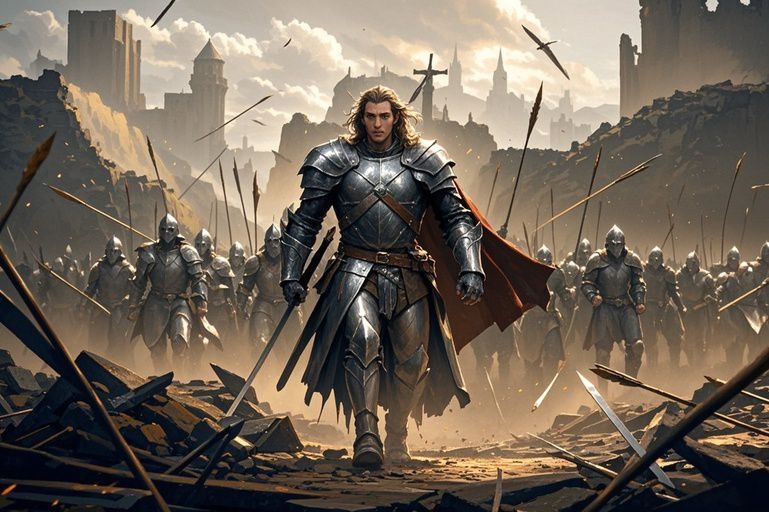
In the years when the Internet was becoming popular, many groups online had far more genuine communication than today. It was a time before the concepts of chasing, writing, or pandering to readers were prevalent in the online literary scene, and homoeroticism produced a lot of good work from the heart. I am most impressed by the two authors in Dragon Castle, or I can also say that I am most impressed by the two Chinese Lord of the Rings homoerotic authors. In addition to them, I have read the Lord of the Rings homoerotic; there is no Chinese homoerotic works that can reach their level; only one or two American Lord of the Rings homoerotic works can be comparable to them.
One of them is Elrond, whose To the West I reread almost every year or two, more often than I read Lotr. It’s the gentlest Lord of the Rings homage I’ve ever read, tucking in many phrases from classic literature without ever being jarring. The fate of the people stops silently in Lothlorien in their journey westward, never to advance half as far again. The darkness of Middle-earth loomed over them, but the brambles of Lothlorien still shone like summer, and they pondered in the respite of this perilous fate. The foggy, hilly city she mentions in her author’s note and the figure of her standing by the murky river waiting for the cable car to cross the river remain in my memories as long as the never-ending Lothlorien she writes about. “We all met here, gathered in one place. But some of us didn’t recognize each other, some of us never knew each other. Some never knew of today’s meeting, and some didn’t realize it until later when they met again.” (Quoted in Dr. Zhivago and previously quoted by Elrond in Heading West.) Unfortunately, she was like her elf, Emin, with whom I briefly crossed paths for a fleeting moment and have been lost to the world ever since.
The other is Ecthelion, and by my reckoning, I should have read Ecthelion’s Silm homage before I’d even finished the Silmarillion. Tor is always criticized for not being good at characterization, and the depiction of Silm is quite a tough read. It’s a pain to imagine being in a world where there’s only Togashi and not a fellow author. Toledo puts up the world’s shelves, but flesh and blood aren’t fleshed out enough. Especially in Silmarillion, the characters and stories must be filled in by fellow authors more than in LotR and Hobbit. Ecthelion was the first “archetypal” fellow author I came across when I was in high school, and she (I thought it was “he” at the time) and I used to work together. Ecthelion was the first “koanist” author I ever encountered. I had some exchanges with her (I always thought it was a “he”) on MSN when I was in high school, and even though I didn’t talk much and didn’t know what I was talking about, she opened up the history of the world of Togolese to me. Without a preacher like Ecthelion, it would have been challenging for a latecomer like me, who swallowed the whole thing, to take the world of Toledo seriously. It is fitting that she should be responsible for this translation’s appendices, maps, and indexes. Of course, Ecthelion, in the world of the same person, also did more than just examination work. She also resurrected a personality like fire Noldor prince and an elf lord playing the flute to send his people to the battlefield because of her words, and I have since then, it is difficult to forget these two elves sleeping in the depths of the history of Middle-earth. It’s just a shame that MSN has since become more and more decrepit, and the connection between me and Ecthelion faded even before MSN’s demise.

Things change. The linguistics I chose later on has long since changed from what it was back in the days of Tolu; Chomsky’s formal linguistics has greatly changed the interest in linguistic research, and modern technological means have gradually put linguistic research on the scientific path of instruments and data. I have seen many linguists who argued over whether or not the Shang dynasty had compound consonants or whether or not the brain was innately predisposed to grammatical presuppositions, but never again have I seen a linguist who played with a word or two of Greek and was fascinated by its hard, shimmering pronunciation, as Toledo was. Linguistics is no longer a land where poetry meets science; Tolao experienced the last romanticism of linguistics and is now reduced to the postmodern era’s cold, hard, metallic tones. I often feel as if I were standing in front of Isengard’s gigantic machine, watching the current of change, but no longer trying to salvage the idyllic life that has gone away and that I have only heard about, and which I can’t help associating with Lotr even if Thor denies it. On the other hand, my choice and departure from linguistics was more like an apocalyptic goodbye to a place where there was no way out.
When a book is important enough to a person, it becomes more than just words to the reader. I am glad that when I look back at my own life, I can see such a work of bravery, friendship, and light everywhere, and I am even more glad that in the twelve years since I met Tolu, I have come across a book that brings back so many memories and satisfies so many people. I am even more grateful to have come across this translation, which has brought back many memories and fulfilled my expectations for many years, twelve years after my encounter with Tolstoy.
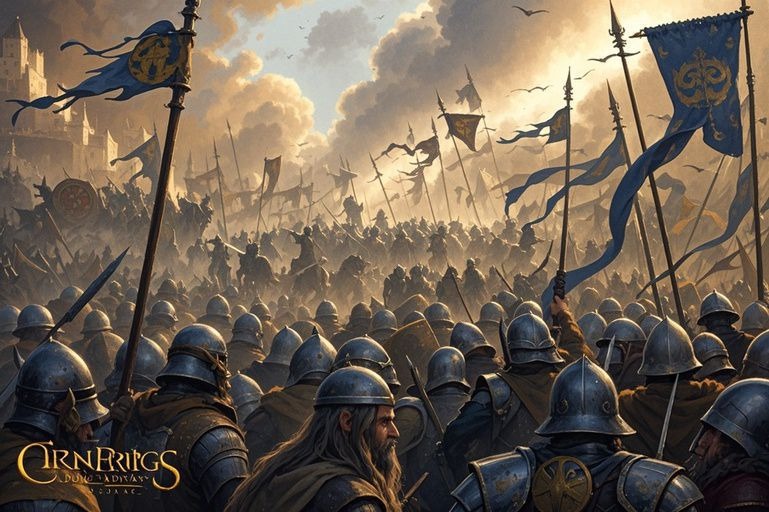
“Now it is time for you to read Neil Rune, a magnificent and profound book; the more you read it, the more it seems that everything is in it, from the lightest fragrance of life to the thick flavor of its heavy fruits. There is not a single thing here that cannot be understood, comprehended, experienced, and intimately known in the afterglow of recollection; there is no experience that is too small, that is, that the unfolding of minimal events is like a great destiny, and that destiny itself is like a singularly vast piece of fabric, with each thread led by an infinitely tender hand to line up beside the other, and a thousand of them balanced against each other. You are about to receive the great happiness of reading this book for the first time, through countless surprises, as if in a new dream. But I can tell you that we shall always be astonished when we read these books and that they can never lose their charm, not even the realm of the fairy tale they first gave to the reader.” –Ten Letters to a Young Poet by Rainer Maria Rilke (quoted by Elrond in Westward)
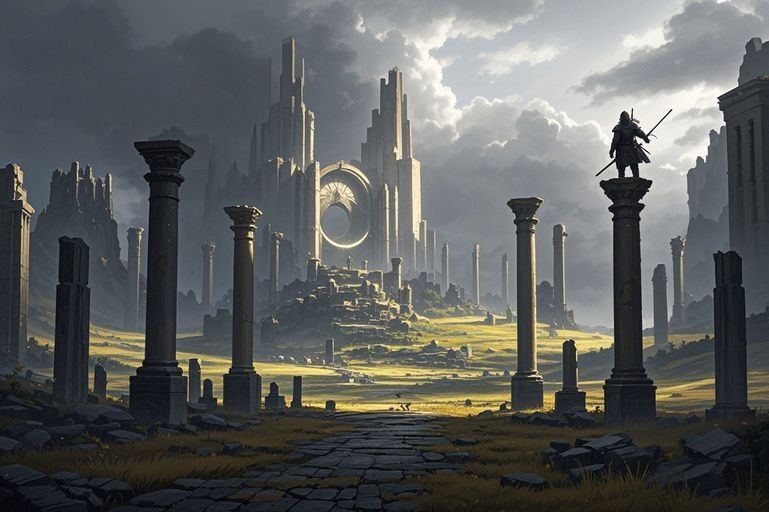

 Essays on CLassic
Essays on CLassic